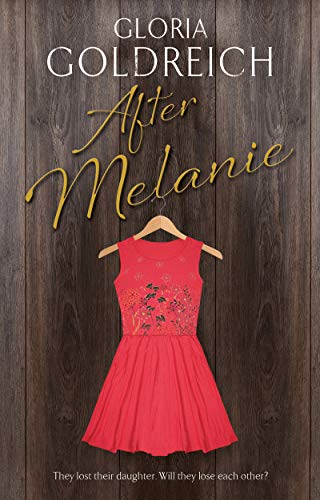معلومات عنا
حقوق الطبع والنشر © 2024 Desertcart Holdings Limited


Full description not available
S**N
Beautiful writing
This book was so well written. Having lost a child myself the topic interested me. This author was descriptive of feelings of loss, and I did find the plot interesting. I recommend it.
K**G
working through grief
No one knows how they will react when they lose a child except that they will be overcome with grief. How a couple works through that- well that's really really hard. Here, David and Judith find themselves turning to others, rather than to each other. Nancy and Jeffrey, their respective friends (for want of a better word) deserve better. Some of this might be familiar territory but Goldreich writes well. Thanks to Netgalley for the ARC.
S**E
The loss of a child
Thank you to Net Galley and Severn House for an ARC of this novel, in exchange for my honest review. The loss of a child is arguably the worst loss anyone can experience. Most marriages do not survive. This is the story of one family and how each member handles their grief. Melanie's parents start finding themselves turning to others rather than each other to try to get through their days. I felt the emotion of this book. The only things I didn't love was that I didn't really "feel" I knew Melanie, their daughter that passed, and some of the reactions seemed unrealistic to me. I recommend this book.
A**S
The debilitating effects of grief
Your thirteen-year-old daughter rushes out the door to go to school, waving goodbye, with a half-eaten Pop Tart in one hand. A few hours later, the school calls: your daughter is dead.In that moment, Judith and David go from being the parents of two children to being the parents of one, older son Brian. That sort of loss devastates with its grief. Months later, Judith and David essentially are ghosts, both to themselves and to each other. Brian is engaged to a woman Judith grudgingly accepts, and he is becoming fearful for his parents’ marriage.Gloria Goldreich takes a deep dive into a marriage struggling to survive after the sudden, unexpected death of a child. Judith, embarking on a sabbatical she planned before Melanie’s death, finds herself with too much time, a stark irony given the brevity of her daughter’s time. She wants David to talk to her, to open up to her, to share his grief with her, but David doesn’t think he can do that. He worries that she is too self-sufficient and if he shows her his heartbreak, she will think him weak.Into this void come two people, a man Judith reconnects with while volunteering at her synagogue’s thrift store (he and his wife once socialized with David and Judith many years ago, and he has been widowed for two months), and a woman with whom David works. They seek different things from these people. Judith helps prepare a woman’s belongings for donation to the thrift store, working her way through her pain and trying to find life in parts of her she believes are dead. David gives himself permission to weep, to grieve, to connect with someone who has suffered a loss of her own.You will worry over David and Judith. Are they better together, or would their strength come from separating? Maybe these two really would be happier going their separate ways.I felt all of their grief. The scenes in which Judith and David try to face their new normal are gut-wrenching. David’s moments of letting himself feel everything will tear your heart out. Gloria Goldreich lost me a little in some of the thrift store scenes, though. Judith forms a friendship with a woman who suffered her own losses, and while I can see the connection thematically, I felt like some of those scenes threw off Goldreich’s pacing.As far as addressing grief, this book is solid. You will find yourself wanting David and Judith to reunite and wanting them to separate, and I appreciated Gloria Goldreich’s ability to make both seem plausible.
ترست بايلوت
منذ شهر
منذ شهرين